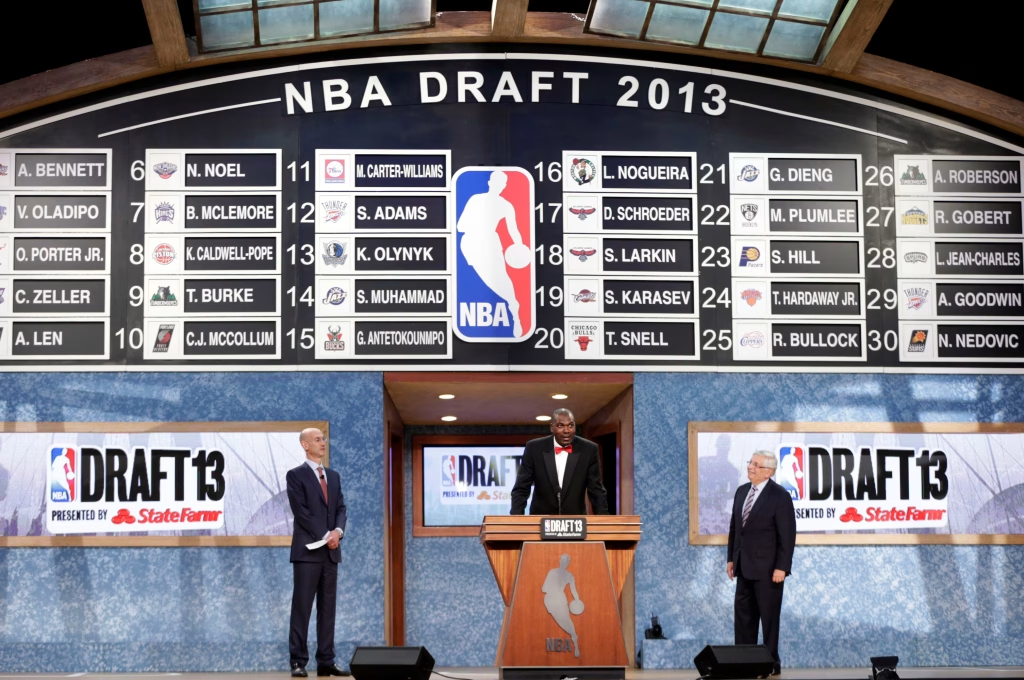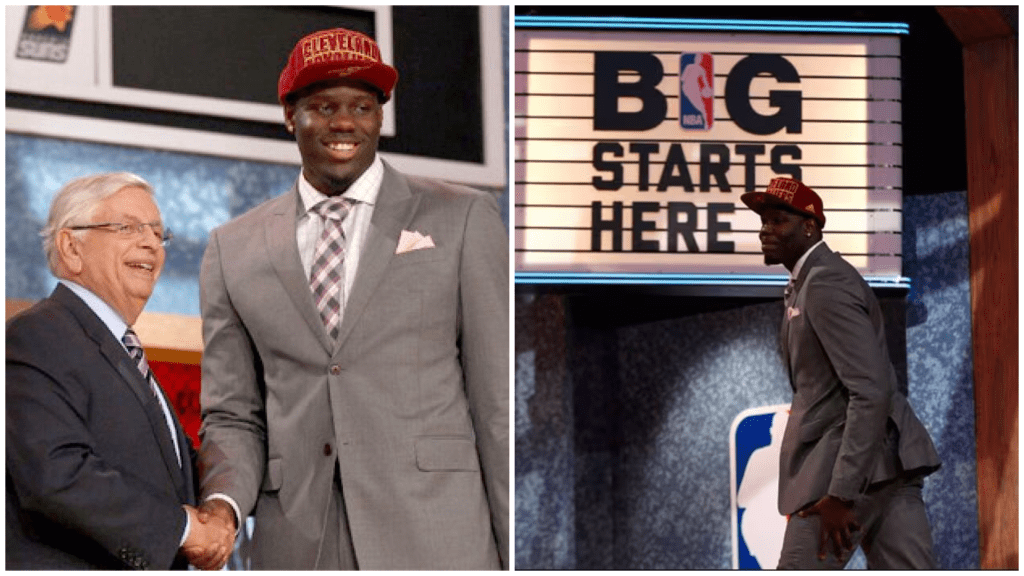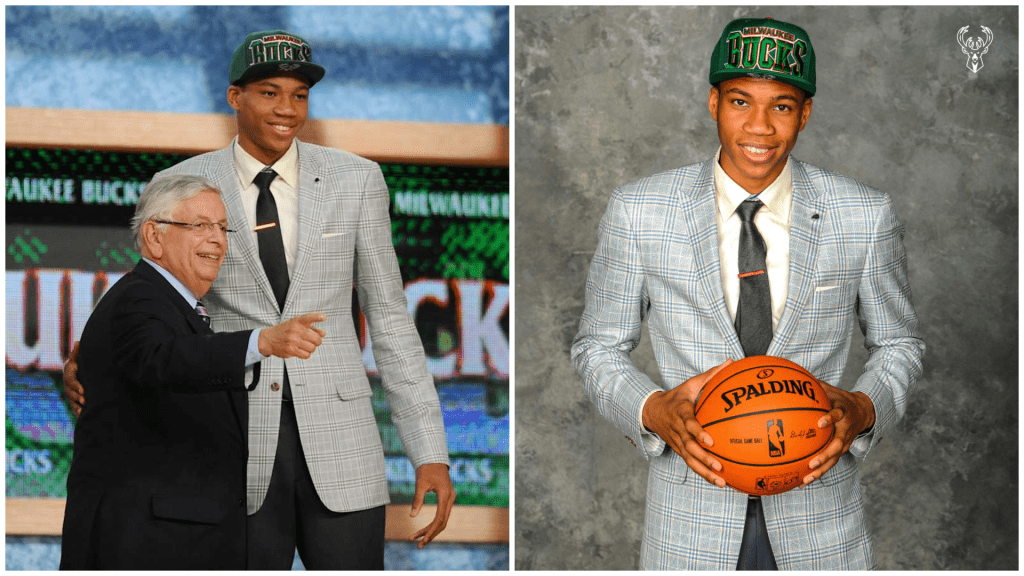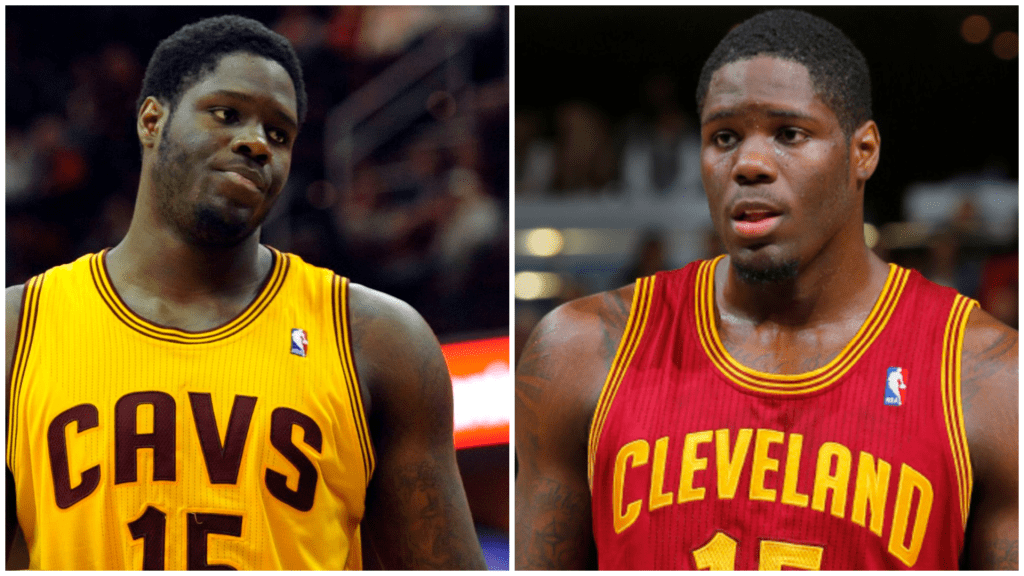
The Heartbreaking Truth Behind the 2013 NBA Draft Nobody Wants to Remember
It’s funny how a moment can look so bright and hopeful when it happens, yet sting so much in the years that follow. I remember the day of the 2013 NBA Draft like it was yesterday. Sitting in Brooklyn’s Barclays Center, the air crackling with anticipation, teams gathered around, players waited in the green room with a mix of nerves and dreams, and the whole basketball world leaned in. This was supposed to be a turning point for franchises that had struggled, a fresh batch of future superstars ready to change everything. But in that swirl of expectation, something went terribly off track. The draft that day felt like a gift, but in hindsight, it’s become a cautionary tale—one of the weakest, most disappointing drafts in NBA history. And at the center of it all was the No. 1 pick, Anthony Bennett.

Heading into that day, there was a wide belief—shared by insiders, fans, even a few anonymous GMs—that this was a weak class. Quotes at the time called it “historically weak,” and it felt less like a draft and more like a patch job. Still, deep down, the hope was that someone, anyone, would emerge. When the Cavaliers’ name was called, the shock from the crowd and the analysts was palpable. That’s not the usual reaction to a No. 1 pick. Bill Simmons, one of the best voices in the game, couldn’t contain it: “Woah!” he exclaimed live on air—capturing a moment of collective surprise and confusion.
Bennett himself seemed surprised. Reports said he hadn’t been told he was going No. 1 ahead of time. Imagine that moment: your dreams coming true, but you’re still caught off guard, like you were never sure it was real. That uncertainty foreshadowed everything that followed. From the very beginning, things felt messy. He arrived out of shape, struggled right away, missed his first sixteen shots. For a player meant to be a franchise cornerstone, it was a rough introduction.
I don’t want to sound cruel, but watching him over that first season felt like something broken. The Cavs, trying to recover post-LeBron, desperately needed a star. Instead, what they got was a player who never stayed healthy, never found his rhythm, and never became the guy that a No. 1 pick should be. He averaged just 4.2 points and 3 rebounds. No starts in Cleveland, more DNPs, more questions than cheers. His name quickly became shorthand for disappointment. I remember clicking through sports feeds and seeing phrases like “biggest bust ever.” That stung. I felt a strange mix of disappointment and pity.
But here’s where the story gets even darker: he wasn’t alone. The top 10 picks that year were mostly duds. Sure, there was Otto Porter at #3—solid, dependable, but not the kind of guy you build a franchise around. Cody Zeller at #4 and Alex Len at #5 were fine role players, but nobody emerged as a star. Nerlens Noel battled injuries; Ben McLemore showed flashes but never put it together; Kentavious Caldwell-Pope became a tough defender, but again, not franchise material. The only player who even touched stardom in that range was C.J. McCollum, and he went at #10.

What makes this hurt more is who was available. Giannis Antetokounmpo, yes that Giannis, went 15th overall. Rudy Gobert, now a defensive monster, went 27th. Michael Carter-Williams was a surprise Rookie of the Year at #11. But those hall-of-fame type talents weren’t in that top tier where they usually land—where expectations (and pressure) live.
I remember reading a piece in The Guardian that year, calling Bennett “the Dante Hicks of No 1 picks”—the kind of pick nobody expected to be there, a wildcard that backfired. That line stuck with me because it perfectly captures the sheer randomness of that night. Bennett wasn’t seen as the best player in that draft class. He was in the 5–10 range. But thanks to a swirl of needs, fits, and hope, he became number one.
For the Cavs, that pick shaped their next few seasons. They had to admit their mistake. Former GM David Griffin later said they “misjudged Bennett’s drive and ability to handle adversity.” It wasn’t just talent; it was grit, it was heart, it was the stuff legends are made of. Bennett didn’t have it on the biggest stage. That moment marked the beginning of a painful rebuild.
In the years that followed, Bennett bounced around. Minnesota, Toronto, Brooklyn. G League stints, overseas moves. By 2017, he was out of the NBA. More recently he’s been playing professionally overseas, including in Taiwan. Part of me admires that resilience. He didn’t just vanish—he kept pushing, kept playing.

Meanwhile, Giannis was growing into a two-time MVP. Gobert became a multiple-time Defensive Player of the Year. Carter-Williams, while not a long-term All-Star, was Rookie of the Year. Most other top-10 picks that year fizzled. It was like a cosmic lottery gone wrong.
The GM who called 2013 “historically weak” nailed it. That draft had fewer than a handful of long-lasting NBA rotations. There were some mid-tier catches—and that’s about it.
As a fan, it taught me a lesson: draft night is magical and terrifying. It’s the hope of a new beginning, but it’s fragile. You never really know what you’re getting. For every Steph Curry or Embiid, there’s an Anthony Bennett. And when it happens at #1 overall, the heartbreak is loud and stark.
Now, ten years later, we look back and say “wow, that was a brutal draft.” But back then, we were leaning in, believing. The moments of hope—the green room, the hardwood, the roar of the crowd—felt alive. And then the truth hit. Drafting is more art than science, weighted by emotion, by speculation, by personal stories, by what-ifs.
I don’t want to end on a sad note. I think what’s real is the entire tapestry of it. Bennett’s story—Canadian kid, UNLV standout, drafted first, struggled, fought, moved on—is human. It’s raw. It’s imperfect. And in some ways, it reminds you why we watch and care. Because sometimes dreams don’t turn out how we hope—but they still matter.
So yeah, that draft was horrible. Weak class, a flawed No. 1 pick, missed opportunities. Yet within it, seeds of greatness were there—just buried. Watching Giannis grow, thinking “what if he’d gone earlier?”—it’s bittersweet. But basketball lives on this paradox: one night changes everything, and sometimes nothing at all.
That’s the power, and the heartbreak, of the draft. And the 2013 NBA Draft will always hold that complicated place.